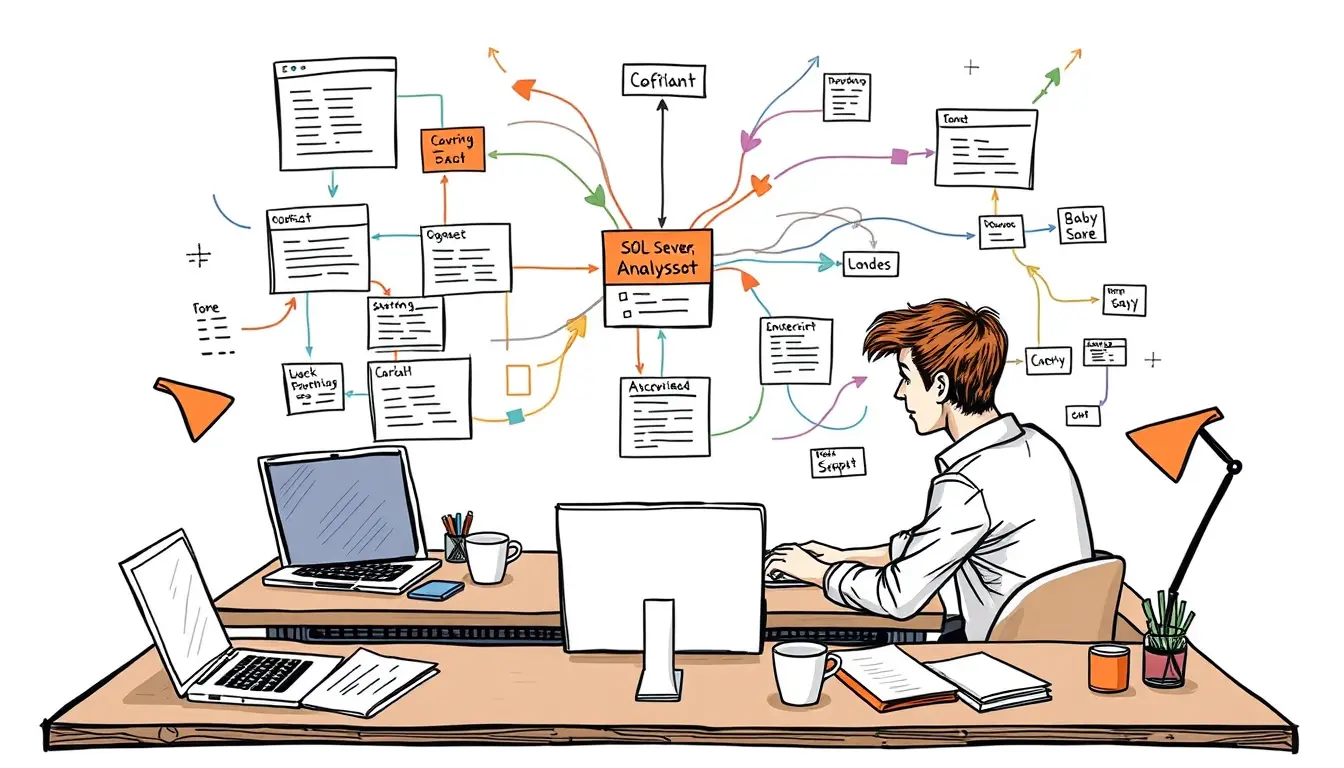This blog post will discuss requirements gathering workshops and their impact in helping people achieve success in their respective fields. Are you feeling stuck in achieving your short and long-term goals? If so, you may need to participate in requirements gathering workshops that can help you unlock your full potential. Whether you are a student trying to determine the best path for a successful career or an experienced professional looking to move forward in your job, workshops can give you a better perspective and the practical tools needed to succeed. Requirements gathering workshops are designed to help participants understand their needs and ambitions, while also identifying and leveraging the resources needed to get there. During the workshop, participants typically identify potential challenges, explore solutions, and develop an action plan to reach their goals. It is through this process that attendees gain a clear understanding of what they need to do to be successful. Additionally, the structure and environment of the workshops can help the participants stay focused and motivated to meet their goals. These workshops provide the perfect opportunity to unlock your potential and make a real impact in your life. By participating in a requirements gathering workshop, you will be able to learn essential skills to move forward in your career and gain insights into how to achieve success. In addition, the workshops can bolster your confidence and provide the clarity needed to make successful decisions. Ultimately, these workshops can help empower individuals to reach their goals and realize their full potential.
Introduction
Requirements gathering is often the first step to success. Without understanding the scope and details of the project, it is impossible to create a clear path to success. Requirements gathering workshops provide the avenue for teams to work together and identify key components of a project. They help in the collection and organizing of data, designing effective solutions, and predicting potential roadblocks.
Requirements gathering workshops are used to collect information about stakeholder needs and expectations for a project. By gathering the opinions of stakeholders, requirements workshops can help to identify requirements that may not have been taken into consideration at the beginning of a project. These workshps can also drive effective conversations by clarifying project goals and identifying potential conflicts of interest between stakeholders.

Requirements Gathering Techniques
[table id=3 /]
Benefits of a Requirements Gathering Workshop
Requirements Gathering Workshops provide numerous beneficial aspects that team members must take into account in order to reach success. The most important thing a Requirements Gathering Workshop can do is bring everyone involved with the project together on the same page. It is essential for all team members to have a clear understanding of the project’s goal, timeline and resources.
Requirements Gathering Workshops are second in line for helping teams reach their goals for the project. Such workshops provide an opportunity for all the stakeholders to get to know each other, build a common ground on which to function and align the vision. When all team members understand each other’s point of view, they will be able to collaborate and agree on the desired outcome.
Moreover, a Requirements Gathering Workshop can also improve communication within the project team. By understanding the strengths and weaknesses of each team member, the team can identify areas in which they need to focus and come up with solutions that will benefit the whole team. This will ensure that the project remains on track and results in a successful outcome.
Additionally, Requirements Gathering Workshops are invaluable tools for identifying any potential risks that might arise during the course of the project. By discussing potential risks and identifying what areas need improvement, the team can gain a better understanding of the scope of the project and work together to mitigate any risks that might occur.
Finally, Requirements Gathering Workshops will help the team effectively manage their resources. By having an understanding of the requirements for the project, the team can develop an effective resource management plan that will help them achieve their desired goals and objectives. This will enable teams to direct their resources towards tasks that have the most impact and will maximize the use of available resources.
In conclusion, Requirements Gathering Workshops are essential for any successful project. By bringing all stakeholders together, fostering communication, and managing resources, the team can better understand their goals, timeline and resources and unlock their potential for success.
The Prerequisites for a Successful Workshop
If you want to unlock your potential, hosting a successful Requirements Gathering Workshop is essential. In order to host a successful workshop, there are certain prerequisites that must be established beforehand.
First, communication is key. When planning a Requirements Gathering Workshop, it is important to clearly communicate with all stakeholders in order to ensure everyone is on the same page. This includes having a clear, concise, document for the workshop agenda so that everyone understands the expectations of the day.
Second, collaboration is equally important. Before the workshop, make sure the team is aware of their roles and responsible for specific tasks. This is also a good time to identify any overlap between roles and split the responsibilities accordingly. Additionally, it is useful to plan ahead for any challenges that may arise from collaborating.
Third, consider the requirements gathering tools that will be used during the workshop. Take the time to research and determine which tools are best for the job. Some popular tools for Requirements Gathering Workshops include interviews, surveys, and questionnaires.
Finally, ensure the workshop environment is comfortable and conducive to productive work. Find appropriate space for the workshop, and make sure it is equipped with all of the necessary technology and supplies. In addition, allow ample time for breaks throughout the day and discourage the use of devices that can be distracting during the workshop.
By taking the time to adequately plan and prepare, you can ensure your Requirements Gathering Workshop is successful and help unlock your potential.

Understanding the Different Types of Workshops
Requirements gathering workshops can be a powerful tool for any project development team, as they provide a safe platform for discussing issues and allow both individuals and groups to identify necessary components needed for success. However, not all workshops are the same. Depending on the project’s scope, different types of workshops can be used to best maximize the potential for success.
Brainstorming workshops are best utilized during the early stages of a project. These meetings bring together a group of individuals to generate creative solutions to stated challenges. It is important to recognize that no idea is a bad idea during brainstorming sessions, as coming up with multiple possible solutions can help to spur further discussion.
Once brainstorming has been completed, team members can move on to identification workshops. Here, any ideas generated in the brainstorming sessions can be discussed at length and specificity. This context allows the team to determine what tasks must be completed, which will require resources and how long each step should take.
Once the identification process is finished, prototyping workshops are ideal for fleshing out the identified needs. During this stage, the team focuses on practical applications of the steps determined in the earlier stages. When to use what resources and in what order can be discussed in detail, and team members provide feedback on the process.
Finally, testing workshops are necessary to determine if the process and requirements developed meet certain criteria. Through this process, teams can understand if the resources allocated to the project have been used effectively and what aspects may need to be revisited. Requirements gathering workshops are crucial in unlocking the potential of a project. However, the types and stages of these workshops vary depending on the project’s scope. Understanding how and when different types of workshops should be employed is key to ensuring project success.
Structuring Your Workshop for Optimal Results
To achieve optimal results, it’s important to structure your workshop with clear goals and objectives. Start by creating an agenda with timed activities and breaks to keep attendees engaged. Incorporate brainstorming and group activities to encourage collaboration and creativity, using open-ended questions to promote discussion and ensure all perspectives are heard. It’s also helpful to assign roles such as facilitator, timekeeper, and note-taker to keep the workshop on track. Providing ample opportunities for feedback and evaluation can help improve future workshops. Finally, ending the workshop by summarizing key takeaways and action items for next steps can help ensure that attendees leave with a clear understanding of what was accomplished and what steps need to be taken moving forward.
Making Sure Your Team Members Are Prepared
To ensure that your workshop runs smoothly, it’s important to make sure that your team members are prepared. This can be achieved by communicating the goals and objectives of the workshop to team members in advance and sharing the agenda, materials, and any pre-work that needs to be completed. It’s also important to ensure that team members have the necessary skills and knowledge to participate fully, and consider providing training or resources to help them prepare. Encourage team members to come prepared with questions, ideas, and feedback to contribute, and set expectations for active participation and engagement from all team members. Finally, follow up with team members after the workshop to ensure that any action items are being addressed and that the workshop was successful in achieving its goals.
Tips for Maximizing Learning During a Workshop
When it comes to maximizing learning during a workshop, there are several tips that can be helpful. Creating a safe and inclusive environment that encourages participation and sharing can help participants feel comfortable and engaged. Using a variety of teaching methods can accommodate different learning styles, while encouraging participants to ask questions and provide feedback throughout the workshop can help facilitate the learning process. Real-world examples and case studies can also be used to illustrate concepts and theories, and providing opportunities for participants to apply what they’ve learned through group activities and exercises can help solidify understanding. Reflection and debriefing activities can also be useful in helping participants process and internalize new information. Finally, providing resources and follow-up support can help participants continue learning and applying what they’ve learned after the workshop.
Conclusion
In conclusion, requirements gathering workshops can be incredibly valuable for teams looking to achieve a common goal or complete a project. Structuring the workshop with clear goals and objectives, incorporating group activities and open-ended questions, and assigning roles can help ensure optimal results. Making sure team members are prepared by communicating goals and objectives, sharing materials and pre-work, and setting expectations for active participation is also crucial. Finally, maximizing learning during the workshop can be achieved by creating a safe and inclusive environment, using a variety of teaching methods, and providing opportunities for application and reflection. By following these tips, teams can successfully gather requirements and move closer to achieving their goals.
FAQs
What are some basic requirements gathering tools and techniques that a business analyst should know?
As a business analyst, there are several tools and techniques that you should be familiar with for requirements gathering. Some common ones include interviews, surveys, workshops, prototyping, and observation. It’s important to understand the strengths and weaknesses of each technique and use them appropriately depending on the situation and project needs.
What is the requirement gathering process?
The requirement gathering process involves identifying, analyzing, and documenting the needs and objectives of a project or system. It typically involves several steps, including defining the scope of the project, identifying stakeholders and their needs, gathering requirements using various tools and techniques, analyzing and prioritizing the requirements, and documenting the requirements in a way that can be easily understood by all stakeholders.
How can I get better at requirements elicitation as a Business analyst with no experience?
To get better at requirements elicitation as a business analyst with no experience, you can start by familiarizing yourself with common tools and techniques used in requirements gathering. You can also seek mentorship or guidance from more experienced business analysts, attend workshops and training sessions, and practice eliciting requirements in a safe and supportive environment. Additionally, developing strong communication and interpersonal skills can help you effectively elicit and understand requirements from stakeholders.
How do business analysts gather requirements?
Business analysts gather requirements by using a variety of tools and techniques, including interviews, surveys, workshops, prototyping, and observation. They work closely with stakeholders to identify and understand their needs and objectives, and document those requirements in a way that can be easily understood by all parties involved. Throughout the requirements gathering process, business analysts also analyze and prioritize requirements, and ensure that they are aligned with the overall goals of the project or system.
Who does formal requirements gathering?
Formal requirements gathering is typically done by business analysts or other professionals who are responsible for defining the scope and objectives of a project or system. This may involve working closely with stakeholders from various departments and levels within an organization to gather and document requirements, and ensuring that those requirements are aligned with the overall goals of the project. Depending on the size and complexity of the project, formal requirements gathering may also involve the use of specialized tools and techniques.














Leave a Reply